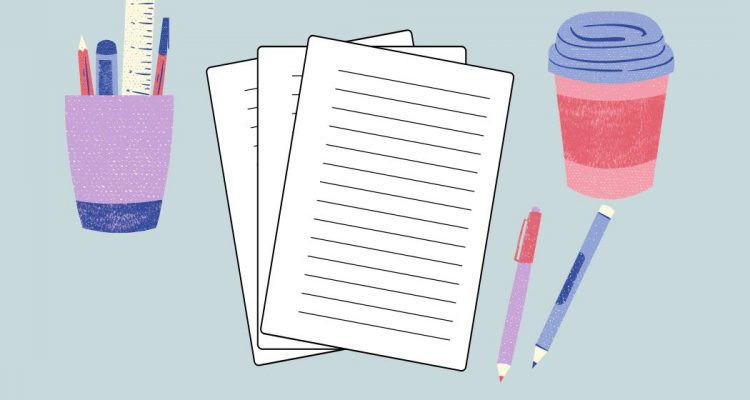I never quite understood midterms and finals seasons. As a student, you have to balance five classes (sometimes either four or six) as they all assign tests, essays, projects or presentations within a week or two of one another. It’s enough work to absolutely tear apart one’s mental health to the point where most of us don’t even have time to get a full eight hours of sleep or eat three meals a day. Continually, it’s just a period of time to cram information in our brains that we forget by the next semester … at least, it is for me. This is just the unfortunate truth behind academic validation.
During my first and sophomore years, I learned about Jesse Stommel and his “Ungrading” approach in my “Rhetoric and Composition” and “Writing and Responding” courses. And in times like these, such as exam week, I tend to always catch myself daydreaming of this strategy becoming a reality in educational settings like Fairfield.
Right now, our grading system is based on a numerical scale, which is in return, assigned a letter grade. Grades 59 and below are classified as “failing,” which means that if a student were to get a little more than half of the material correct, they would still not receive credit for the course.
In Stommel’s “Ungrading” strategy, students would no longer receive these grades as they are no longer assigned the “common testing protocol”. Rather, the course instructors will give lectures regarding the course topic and assign outside readings for students to complete. Most times, students aren’t given a tangible assignment in response to the reading, (they may be asked to submit their thoughts in a discussion forum) but instead, they are expected to have taken it upon themselves to digest and understand the information and come to the next class ready to participate in a discussion.
In the middle of the semester and towards the end, the “midterm” and “final” would be a response paper to what they believe they have learned, their feedback on the course topics and their own self-evaluation of how they performed. From there, their “grade” is an automatic “A” because they have not only participated throughout the class but their understanding or knowledge will have been instilled in their mind. Some additional forms of assessments may also include minimal or contact grading, authentic assessment or process letters. For the students who don’t apply themselves and don’t turn in any of the responses explaining their newfound knowledge, then, unfortunately, they won’t pass the class. This is still a current, usual standard, however.
As of right now, it is obvious that most students are just temporarily memorizing facts (and on rare occasions, there are students who cheat or plagiarize) only so that they earn an A, not because they actually want to learn. We are so focused on achieving an impressive GPA and ask our professors questions like “how many points will this be worth” or “what can I do to get an A” instead of “what should I do” or “why is this important?” Overall, there are just no benefits to the grading system as it stands; all it does is induce stress, rank students against each other competitively, put professors and students in a position against one another and cause students to lack trust in their own academic abilities.
Instead of sticking to our usual numerical system where we often don’t actually learn anything in the long run, the “Ungrading” approach will help students focus on the actual information rather than just chasing an unrealistic academic achievement. While I understand this might not work in courses for future doctors and engineers as their career relies heavily on memorization, this would be incredibly beneficial for most, if not all, humanities courses and others.
So, as I am on my way to writing three different essays and formulating a project, I am longing for Stommel’s brilliant process to become a part of our campus life; and I also encourage any professors who are reading this to analyze Stommel’s argument and implement a few of his thoughts in your own teaching.


Leave a Reply